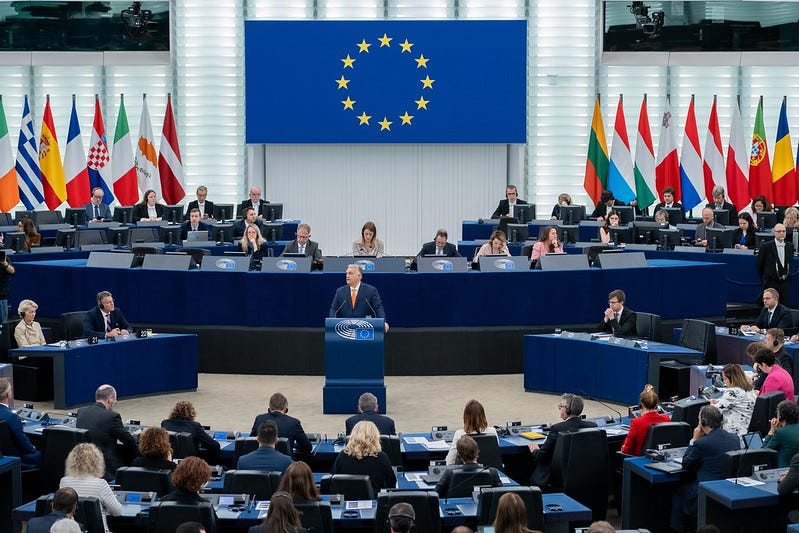🇪🇺EU Council to Discuss Escalating Article 7 Proceedings Against Hungary Over Rule of Law Breaches
The EU Council will revisit the Article 7 case against Hungary on 27 May, as pressure mounts to uphold the rule of law and possibly suspend Budapest’s voting rights.

👋Hey guys, Julien here. The French Dispatch is a reader-supported publication, and both our coverage of current affairs as well as our ability to bring you more news and information on the world arou…



